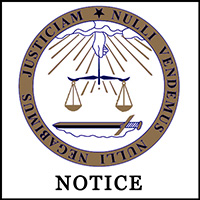|

Dear members of the Bar,
Judge Learned Hand famously suggested that there should be a commandment, "Thou shalt not ration justice." In recent days, as a result of the public health emergency arising from the COVID-19 pandemic, our Massachusetts courts (and courts around the nation) have had little choice but to ration justice. The triage plan ordered by the Supreme Judicial Court and put into effect by our seven Trial Court departments limits in-person proceedings in court only to emergency matters that cannot be resolved through a videoconference or telephonic hearing. We limit entry into the courthouse only to those who absolutely must be there so that we can preserve the health of our court personnel, lawyers, litigants, jurors, and the general public. In short, we ration justice for precisely the same reason that we ration food in hard times -- to focus our limited judicial resources on avoiding serious and immediate harm and to make sure that we and our justice system survive to see a better time.
We will get through this, both as a Commonwealth and as a court system, whether it be in weeks or months, but it will not be pretty. We know many are being hurt: defendants in custody awaiting trial, crime victims awaiting closure to their ordeal, and children in limbo awaiting custody or adoption decisions, to name only a few. And we know we must do what we can to limit their pain. We know how challenging this is for our devoted court officers, probation officers, and other court personnel, as well as judges, clerks, and registers, who must guard against potential exposure to the COVID-19 virus every time they triage a matter to learn whether it is an emergency and, when it is, to be present to resolve it. And we know the financial hit this means for many lawyers who now have nowhere to go to litigate their cases.
The crisis also inspires clarity. Over the course of this journey, we will gain new appreciation of the importance of a functioning system of justice -- for the preservation of our rights, for the peaceful resolution of disputes, and for a healthy, growing economy. When we clear our courthouses of all but emergencies, we recognize that our court personnel, like police officers, firefighters, paramedics, and health professionals, are a critical part of an emergency response system, and face risks in fulfilling that role. And the crisis reveals how agile, imaginative, and persevering our judicial work force can be when we encounter unprecedented challenges. Even before this public health crisis, I often said that ours are "duct tape" courts; we find a way to fix a problem and get the job done. Now our courts are unleashing the creativity, adaptability, and imagination of a MASH unit in times of war to figure out how to communicate to the public, answer questions, provide necessary guidance, and resolve matters by telephone, videoconference, and email that only a few weeks ago were resolved only in person in court.
Many lawyers have asked me how they can help in this time of crisis. I invite all the different groups in our diverse bar -- prosecutors, criminal defense attorneys, legal services attorneys, large firm lawyers, small firm lawyers and solo practitioners, in-house counsel, government lawyers, law school professors, and attorneys in our affinity bars -- to create their own version of MASH units, and work with our courts to figure out how we can find new ways to protect the most vulnerable, preserve individual rights, resolve disputes, and somehow keep the wheels of justice turning in the midst of this frightening pandemic. There is abundant room for discussions that begin with the words, "What if...?"
I would love to possess the wisdom and creativity to suggest to you what these improvisations should be, but sadly I do not. I look to your collective wisdom and creativity to devise such improvisations, and try them out. Sure, we will make mistakes, but if we have the agility and wisdom to learn from those mistakes, we will fail, and fail again, until we succeed. If we stand strong, resilient, and adaptive, and work together as judiciary and bar to find "duct tape" solutions to immediate problems that otherwise might take years to solve, we will leave this crisis with a better, more resilient system of justice. And perhaps, if we do our jobs well, a future generation will say of us, "This was their finest hour."
Sincerely,
Ralph D. Gants
|